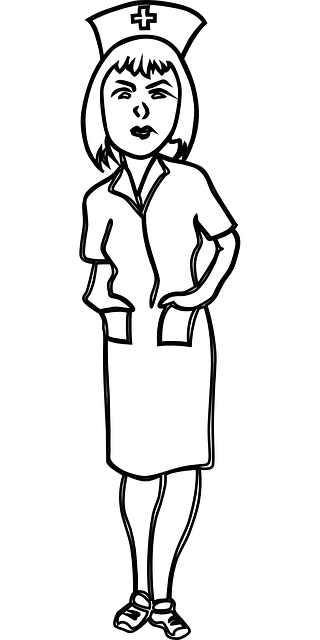
The risks of miscarriage following an amniocentesis test are discussed in this article. This article will discuss the accuracy of this test as well as the signs and symptoms that can be expected from a positive or negative result. This article will help you determine whether an amniocentesis testing is right for your pregnancy. Consider these important points before you decide if you should have the test.
Risks of miscarriage during amniocentesis
There are very low chances of miscarriage with amniocentesis. About 1 out of 100 women will miscarry during the procedure. Most women who receive this test decline. It doesn't matter if a woman is pregnant at any point in her pregnancy. However, the risk of miscarriage is higher for women who are 15 weeks or less. There is also a chance that the amniotic membrane could leak during the procedure.

Accuracy in amniocentesis tests
An amniocentesis examines the fetus and determines sex and lung growth. While this test is very accurate, it can also cause complications for the mother, especially if she is already carrying multiple children. Women should discuss any possible complications with their healthcare provider. The following are some potential complications. If you experience persistent vaginal bleeding, you should immediately contact your doctor.
Positive test results are a sign of good health
If your test results are positive, you will want to know what to do next. After your doctor performs the test, you will stay in the testing facility for approximately an hour. Your heart rate, vital sign, and fetal status will all be closely monitored. You should immediately notify your healthcare provider if you feel dizzy or nauseating during the procedure. Results of the test may take a few days or weeks to come. The results will help you make decisions about treatment.
Signs that a test has failed
Certain birth defects may be detected early in pregnancy using genetic amniocentesis. These tests can detect Down syndrome, cystic fibrosis, and various blood types. These results can also reveal if the baby is suffering from Down syndrome or another defect. A negative result on a genetic amniocentesis is not necessarily a loss of pregnancy. You can still perform further testing throughout your pregnancy.

There are many options for treatment after amniocentesis
If you recently discovered you're pregnant, it's a good idea to find out what your options are following a genetic test. This test is reliable at 99.4% but there are risks. The procedure could fail due to technical problems, insufficient amniotic fluid collection, or cells not being viable after culture. There are also risks of miscarriage, infection and injury to the baby or mother.
FAQ
What does the "health care” term mean?
Health care refers to delivering services related to maintaining good physical and mental health.
What will be the impact on the health care industry if there will be no Medicare?
Medicare is an entitlement program that provides financial aid to low income individuals and families who can not afford their premiums. This program is used by more than 40 Million Americans.
Millions would be without insurance coverage, as some private insurers won't offer policies to individuals with pre-existing medical conditions.
What are the different health care services?
Patients need to be aware that they can get quality healthcare any time. Whether you need an urgent appointment or a routine check-up, we're here to help.
We offer many types and types of appointments. Home care visits are also available for patients who live away from our clinic. If you do not feel at ease in our office, you can be referred to your nearest hospital.
Our team includes pharmacists, dentists and nurses who all work together to provide excellent patient service. We want to make your visit as comfortable and painless possible.
What does "public" really mean in public healthcare?
Public Health refers to the preservation and enhancement of the health status of the community. It includes preventing disease, injury and disability, encouraging good health practices, providing adequate nutrition, and controlling communicable diseases and environmental hazards.
What should you know about immunizations
Immunization is the process by which a vaccine stimulates an immune response. The body responds to the vaccine by making antibodies (immunoglobulins) that protect against infection.
How can I get my free health insurance?
If you're eligible, you could apply for free coverage. You might be eligible for Medicaid, Medicare, CHIP, Children's Health Insurance Program (CHIP), Tricare, VA benefits, Federal Employee Health Benefits (FEHB), military health plans, Indian Health Service (IHS) benefits, or some other program.
Statistics
- The health share of the Gross domestic product (GDP) is expected to continue its upward trend, reaching 19.9 percent of GDP by 2025. (en.wikipedia.org)
- Foreign investment in hospitals—up to 70% ownership- has been encouraged as an incentive for privatization. (en.wikipedia.org)
- Healthcare Occupations PRINTER-FRIENDLY Employment in healthcare occupations is projected to grow 16 percent from 2020 to 2030, much faster than the average for all occupations, adding about 2.6 million new jobs. (bls.gov)
- For instance, Chinese hospital charges tend toward 50% for drugs, another major percentage for equipment, and a small percentage for healthcare professional fees. (en.wikipedia.org)
- Over the first twenty-five years of this transformation, government contributions to healthcare expenditures have dropped from 36% to 15%, with the burden of managing this decrease falling largely on patients. (en.wikipedia.org)
External Links
How To
What is the Healthcare Industry Value Chain
The entire value chain of the healthcare industry includes all activities involved with providing healthcare services to patients. This includes all business processes at hospitals and clinics. It also includes supply chains that connect patients to other providers like pharmacists and insurance companies. The end result is a continuum of care that begins with diagnosis and ends with discharge.
There are four components to the value chain:
-
Business Processes - These consist of the tasks performed by individuals throughout the entire process of delivering health care. A doctor might conduct an exam, prescribe medication and send a prescription to a pharmacy. Each step of the process must be completed accurately and efficiently.
-
Supply Chains are all the organizations responsible for making sure the right supplies reach their intended recipients at the right time. A hospital might have several suppliers. These could include lab testing facilities, imaging centres, pharmacies, or even janitorial personnel.
-
Networked Organizations (NO) - In order to coordinate the various entities, communication must exist between all parts of the system. Most hospitals have multiple departments. Each department has its own office and phone number. Employees will be able to access a central point for information and updates in every department.
-
Information Technology Systems- IT is vital in ensuring smooth business processes. Without IT, things could quickly go sour. IT is also a platform that allows for the integration of new technologies into the system. Doctors, for example, can connect to a secure internet connection to access electronic medical records.